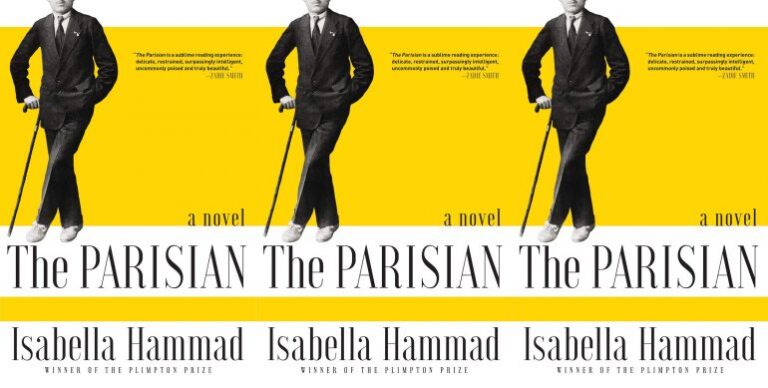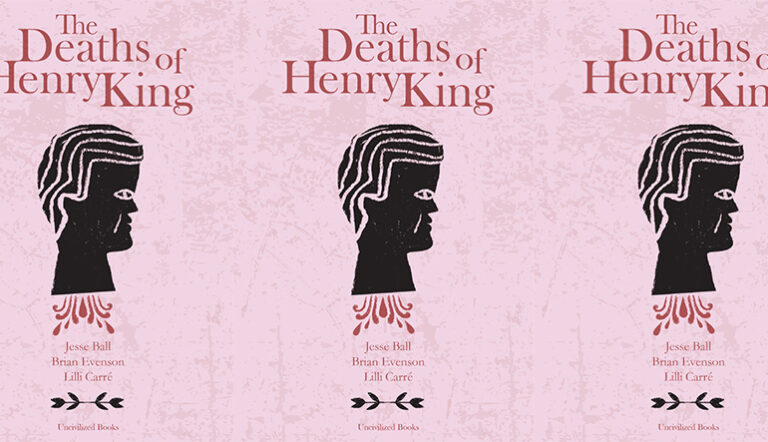Piranesi’s Disenchanted World

Around 1802, as a young man of thirty-two, William Wordsworth penned one of the best-known sonnets in the English language: “The World is Too Much With Us.” The poem, which appeared in the 1807 Poems, in Two Volumes, decries the collective state of modern society, an “us” that both draws in his readers and condemns them (along with himself, if the speaker is, indeed, Wordsworth the poet) for being “too much” with “the world,” “late and soon,” so much so that by “getting and spending we lay waste our powers.” It is unclear if Wordsworth thinks this situation can be avoided, or whether modern individuals can still “render unto Caesar what is Caesar’s” and hold themselves at arm’s length from the world. The opening line of the poem seems to suggest that being in and of the world, being with it, might be a result of “the world [being] too much with us,” or for us, aiding us in the squandering of our capacities, in our valuing it “too much,” a process against which we now might be powerless. What is lost in this trafficking of time is two-fold, both affective and perceptive (for the world, too, as much as we are capable of knowing it, seems to be diminished in this “getting and spending”). The lost individual “powers” Wordsworth is describing are not intellectual or even physical. They appear to involve the heart—which is why the speaker laments that “we have given [it] away” in the lines that follow—but if so, they do not only involve the heart. The heart is merely the relinquished instrument. The greater loss is that, as a result, “for everything, we are out of tune.” Wordsworth is suggesting that an untuning is at work, both aural and affective. He goes on to specify: “It moves us not.” The “it” is generally taken to refer to the natural world. We are out of tune with “it,” in that we neither can hear “this Sea” that the speaker places us before, nor “the wind that will be howling at all hours.” Even if we were to manage to hear them, however, neither are our hearts responsive to such phenomena: “it” does not move us.
The other untuning at work is perceptive. If “this Sea that bares her bosom to the moon; / The winds that will be howling at all hours, / And are up-gathered now like sleeping flowers” are unavailable, this is because, untuned, we are no longer moved to personify the sea into a woman who bares her bosom, or to anthropomorphize the wind into a howling animal. Such things, like the winds themselves, have been gathered up; the experience of nature as a series of presences animating the world is no longer available to us. We are, Wordsworth seems to suggest, out of tune for the natural rhythms, for the ability to sense human nature as a part of a greater nature, or to feel that greater nature’s echo in the human heart. I would rather be a pagan “suckled in a creed outworn” is Wordsworth’s defiant response to this great loss. Then, though one still might not be attuned to the world, at least one would “have glimpses” or “have sight” of what that attunement once looked like. One might see “Proteus rising from the sea,” or “hear old Triton blowing his wreathed horn” in the wind’s howling. Though such classical sights ultimately would be deceitful, even a false visionary outlook would be better than none, than “seeing in Nature” “little” “that is ours.” For Wordsworth, to overly identify with nature and so mistake it in a process of wish-fulfillment that attributes to it something of the human is better than be unable to relate to it at all, or to live in a world that is entirely disenchanted.
This, too, is Susanna Clarke’s argument in her novel, Piranesi, published in 2020 to great acclaim and described as a work of fantasy, a literary mystery, and a thriller-like intellectual puzzle. The book’s many reviewers usually avoid revealing its plot, so as not to ruin the surprise ending, but if one has read Wordsworth’s sonnet, one can already guess. Indeed, the novel’s larger surprises lie not in its narrative design, as is usually argued, but in the argument it makes about attunement, of the sort Wordsworth desired.
In Piranesi, “Myself” lives in a house of infinite chambers, partially flooded by the sea, which has inundated the lower halls and sweeps its high tides into the habitable middle rooms each day. In the upper halls, the wind and clouds trek across the heavens, and the seasons make themselves felt in moonlight and starlight, in the motions of birds, in the cold and heat. Myself is the only inhabitant of this immense palace, where it snows, rains, and thunders, but whose windows overlook only other halls and vestibules and whose own self-referentiality is total. In this palace, each hall is lined with classical statuary of various dimensions, and the statuary, too, is infinite in shape and subject. There are satyrs and nymphs, giants and woodland creatures, titans and heroes.
As is revealed on the first page, of all the statues he has seen (and he has only seen a fraction), Myself’s favorite sculpture is “the Statue of a Woman carrying a Beehive, fifteen meters above the pavement. The Woman is two or three times my own height and the Beehive is covered with marble Bees the size of my thumb. One Bee—this always gives me a slight sensation of queasiness—crawls over her left Eye.” The statue once saved him from drowning, but this fact is less important than that the statue functions as a sort of litmus test for the reader. “How does it signify?” one might ask. Is it a reference to Cyrene in Virgil’s fourth book of the Georgics? To the myth of the birth of Zeus, who, fed in secret by bees on Mount Dicte, eventually dethroned his father? Or is Clarke thinking of Persephone, Queen of Hades—known as Melitodes, or “the honeyed one”—and of the halls of the underworld? Surprisingly, the answer might be that it doesn’t matter. What seems to be important here is that the reader is moved to read the statue, to attribute meaning to it, and to interpret it symbolically. This is a Wordsworthian test. To ascribe meaning to the statue that saves Myself is to attempt to order experience by remembering a “creed outworn,” or to read the world of the novel as more than an undifferentiated series of mysterious spaces in which mysterious, but ultimately meaningless tragedies take place (and the novel can be read that way, as a kind of thriller with a bizarre setting). This is important because the novel tempts one again and again to concede meaninglessness: the house has no center, nor does it have any obvious purpose. Like King Minos’s labyrinth, it is guarded by fearful minotaurs, but they too are made of marble, and are hence not—or in this particular novel are no longer—real. Unless one can identify the minotaurs as such, however, using the old creed that asserted their reality, one will never make sense of Clarke’s larger point. In other words, like Myself, one will remain trapped in the labyrinth.
Myself has no memory of how he arrived in the house, though he keeps a journal and seems to be familiar with modern staples like multivitamins, plastic bowls, sneakers, colored pens, and sleeping bags. He has obtained these items in perennial short supply from a man who visits him, whom he calls “the Other” but whose real name is Valentine Ketterley, and who, like his namesake, the magician in C.S. Lewis’s Chronicles of Narnia, is a man in search of other worlds. Unfortunately, Myself has no inkling that his benefactor might not be all he seems, or any idea that, like Wordsworth’s speaker, Ketterley comes from a disenchanted society, a place both like his house and not. This is because the house fulfills all the desires that Wordsworth’s speaker expresses, and Myself believes its beauty is “immeasurable, its Kindness infinite.” If it has produced Ketterley, this “Other” must be a gift.
The house’s relationship to Myself is indeed beneficent, for the most part. “The Lower Halls provide nourishment in the form of fish, crustaceans, and sea vegetation,” and “the Upper Halls give Fresh Water, which is shed in the Vestibules in the form of Rain and flows in Streams down Walls and Staircases,” coral for body ornamentation, seaweed for fuel and as a staple for soup. Moreover, the world seems to protect Myself, who repeatedly refers to himself as the “Beloved Child of the House.” In response, Myself feels “a duty to bear witness to the Splendours of the World.” Like a good antiquary, he has “begun a Catalogue in which I intend to record the Position, Size, and Subject of each Statue, and any other points of interest.” Despite having been at work for years, he has only reached the Third South-Western Hall. He feels that Ketterley should share in this interest for their immediate environment, especially given that “since the World began it is certain there have existed fifteen people. […] Of the fifteen people whose existence is verifiable only myself and the Other are now living.” Ketterley, however, is not interested in the dead, or indeed in the statuary, the movement of the tides, the birds, or any other phenomena he encounters in the house.
Instead, “the Other believes that there is a Great and Secret Knowledge hidden somewhere in the World that will grant us enormous powers.” In Faustian fashion, Ketterley believes that this knowledge will “vanquish Death,” or perhaps give one the powers of telepathy, or of flight, or of “snuffing out and reigniting the Sun and Stars,” all of which seem encapsulated in his last belief that somewhere in the world there must be knowledge of how to “dominate lesser intellects and bend them to our will.” At first, there is no reason to suppose him wrong. Unbeknown to his victim, he has already succeeded in dominating the single individual he has come across: “If he requires my presence at other times, he calls out ‘Piranesi!’ until I come. Piranesi. It is what he calls me. Which is strange because as far as I remember it is not my name.” Myself doesn’t mind: “[Ketterley] is a scientist like me and the only other living human being, so naturally I value his friendship highly.” The name, however, seems a cruel joke—and the friendship a sham—if one interprets it as an allusion to Giovanni Battista Piranesi, the eighteenth-century architect and artist best known for his etchings of classical Rome and of imaginary carceri, or labyrinth-like prisons.
Myself’s science is very different. Like pre-modern man, he has developed his own techne and episteme. When the salty air corrodes the arms of his glasses, he experiments “with different methods of mending them. On the left arm I have used strips of fish leather and fish glue and on the right arm I have used seaweed. That is less successful.” His knowledge of the world is grounded in observation. He has, for example, created a table of the motions of the tides “for I had no understanding of their natures.” He has also observed and named the constellations, and has even invented a calendar, naming years after significant events, like an idiosyncratic chronicle (the book takes place “in the year the albatross came to the south-western halls.”) The key difference between Myself’s and Ketterley’s scientific methods, however, has to do with each individual’s perception of how, in Wordsworth’s terms, “we lay waste our powers.” The passage in which this difference is laid out is worth quoting in full:
‘It is power that I seek,’ Ketterley begins, ‘and therefore I should be speaking these words to something that is already powerful. Does that make sense?’
‘Yes,’ I said.
‘But there isn’t anything powerful. There isn’t even anything alive. Just endless dreary rooms all the same, full of decaying figures covered with bird shit.’ He fell into an unhappy silence.
‘I have known for many years that the Other does not revere the House in the same way I do, but it still shocks me when he talks like this. How can a man as intelligent as him say there is nothing alive in the House? The Lower Halls are full of sea creatures and vegetation, many of them very beautiful and very strange. The Tides themselves are full of movement and power so that, while they may not exactly be alive, neither are they not-alive. In the Middle Halls are birds and men. The droppings (of which he complains) are signs of Life! Nor is he correct to say that the Halls are all the same. They vary a great deal in the style of their Columns, Pilasters, Niches, Apses, Pediments etc., as well as in the number of their Doors and Windows. Every Hall has its Statues and all the Statues are unique, or if there are any repetitions they must occur at vast distances as I have yet to see one.’
The difference in the pair’s points of view lies, in other words, in their perception of the house. One believes that the house is a “labyrinth,” or capharnaum, that must be made to reveal its secrets, and that true power involves mastering its nature. The other believes that the house “is majestic, mysterious, and at the same time full of Presence,” and that its nature itself embodies power, that the house both lives and “wishes an Inhabitant for Itself to be a witness to its Beauty and the recipient of its Mercies.”
Of course, more fundamentally, the disagreement is also one of outlook. The “world is too much with” Ketterley, and not at all with Myself. Almost subconsciously, the latter has reverted to ancient rituals. He practices augury, listening for the knowledge that the birds bring. Myself also brings offerings and supplications to the thirteen mysterious dead men and women scattered about the halls in a primitive form of ancestor worship. “I speak to them,’ he muses, ‘telling them what I have been doing, and I describe any Wonders that I have seen in the House. In this way they know that they are not alone. Only I do this,’ he points out. ‘The Other does not. As far as I know he has no religious practices.” Myself believes in a providential order in which whatever is necessary will be provided. Humorously, he becomes outraged that “the House gives a greater variety of objects to the Other than to me, providing him with sleeping bags, shoes, plastic bowls, cheese sandwiches, notebooks, slices of Christmas cake, etc., whereas me it mostly gives fish.” And he believes in prophets, one of whom surprisingly visits him to impart a warning. Ketterley’s outlook, on the other hand, can be summed up in his description of the house: “A vision of cosmic grandeur, I suppose. A symbol of the mingled glory and horror of existence. No one gets out alive.”
More importantly for Myself, however, not being at all of the world means that, as Ketterley points out to him, “time. You’re always losing it. . . You know. You get days and dates wrong.” It would be more precise to say that Myself is simply experiencing the passage of time differently from Ketterley—in accordance with the movements of the house rather than with standardized, mechanical time. Or that he and the Other experience the passage of time according to incompatible points of reference. If, as Ketterley bemoans, Myself is “out of sync . . . with me. With everyone else,” this is precisely what allows him, in Wordsworth’s terms, to be in tune “for this, for everything.” As we later learn, Myself once was in tune with Ketterley and “everyone else.” Once, like Ketterley, he was a mathematician who wrote articles on the time plays of J. B. Priestley, on J. W. Dunne’s theories of time, on time travel, and on outsider philosophy. Once, he lived in the year 2012 and was working on a book. The place to which he has come, however, has made him forget, by imparting to him a sense of natural and cosmic time, time according to the movement of the tides and sun, a “late and soon,” to quote Wordsworth, in direct contraction to that of the world. If the modern world experiences a kind of belatedness, a wasting of individual power that happens sooner or later in direct response to our acquisitiveness and our valuing it “too much,” Myself experiences only the immediate present, a “late and soon” in which he seems both lately (or newly) born and in which he is not at all belated, but rather experiences creative primacy. Ironically, the result of this is not just immense creative potential of the kind the ancients might have possessed (discovering the workings of the natural world, creating a system of timekeeping, perfecting technical and artistic skills), but also the loss of that “late and soon” that made him a modern individual. In this latter sense, the house has put him to “sleep,” making him “an emptiness, a silence, an absence.”
Myself’s temporal predicament recalls one of the better-known contemporary definitions of Romanticism as a literary movement focused on a partial forgetting, an escape from the day-to-day world of social, political, and interpersonal ills through imagination and the powers of the mind, which sublimate or elide them. In Clarke’s ultimately anti-Romantic novel, the price of Romanticism—which, for her, goes unacknowledged in poems like Wordsworth’s—is the complete dismantling of any awareness of the existence of pain, hunger, loneliness, poverty, and slavery. A disenchanted Myself, she seems to suggest, might have remained in the world obsessed with “getting and spending,” but he would have borne a name beyond the first-person “I” of lyric and of his lyrical observations. In other words, if critics of Romanticism insist that the escape Romantic literature offers is fundamentally illusionary, merely a deflection, Clarke’s novel takes this a step further. By making Myself a kind of Wordsworthian speaker who has not just illusionarily but actually become “a Pagan suckled in a creed outworn,” and who cannot see that this is the result of being deeply victimized by someone else, Clarke becomes an anti-Romantic: even if the escape Romanticism offered were real, she seems to argue, it would ultimately be undesirable given Romanticism’s inadequate response to material and social ills.
Startlingly, in Piranesi, Ketterley proves to be a Romantic, who wants to believe that re-enchantment might be possible: “this search you and I are embarked on, it’s a truly great project,” he tells Myself. “The knowledge we seek isn’t something new. It’s old. Really old. Once upon a time people possessed it and they used it to do great things, miraculous things. . . They abandoned it for the sake of something they called progress. And it’s up to us to get it back.” In what can be read as a series of allusions to the death of Percy Bysshe Shelley, Ketterley drowns for this belief. Myself, on the other hand, is saved by indirectly learning that Romanticism is just a literary movement, and can never be more. Beyond believing in the beauty and meaning of the statues, he, more than once, is saved from drowning by their stony, physical materialism to which he clings—not as representations but as very real supports against the floodwaters.
Piranesi speaks both to the impossibility of truly reenchanting the world and the desperate desire to do so. “The Ancients ceased to speak and listen to the World,” Clarke writes. “When this happened, the World did not simply fall silent, it changed. Those aspects of the world that had been in constant communication with Men—whether you call them energies, powers, spirits, angels, or demons—no longer had a place or a reason to stay so they departed. There was. . . an actual, real disenchantment.” In the end, for Clarke, even the house of Romanticism in which one can be “in tune” with nature isn’t the true enchanted world, but only its image, a kind of photographic negative or, perhaps, its text. True enchantment is no longer available to human beings, or if it is, it is only as cultural memory. Like Wordsworth’s sonnet, Piranesi seems to suggest that glimpses of this world are available only in the imaginary space of literary meaning-making, in the last place “in which one had stood before the iron hand of modern rationality gripped one’s mind.” Moreover, for Clarke, in our own disenchanted twenty-first century, only science fiction and fantasy still provide access to this “pleasant lee” of Wordsworth’s. If the anti-Romantic genre of biography is what landed Myself in his predicament, and his quasi-Romantic autobiography, or journal, is what got him out of it, by bringing back Wordsworthian “forlornness,” Myself’s Romantic/anti-Romantic viewpoint remains both fractured and only available in a fantasy like Clarke’s. “In my mind,” Myself insists, “are all the tides,” the disenchanted world in which he thinks them both materially real and just one more fiction through which they sweep.


